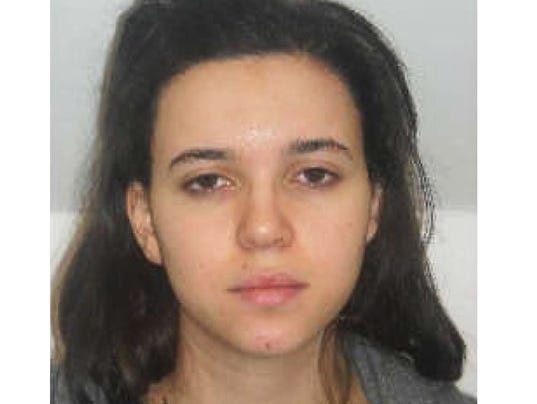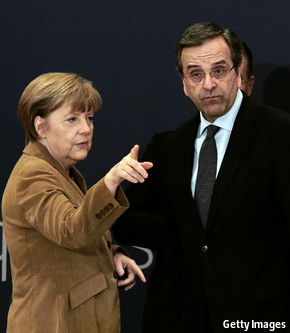Clash of Christian & Muslim values: What’s behind the Charlie Hebdo tragedy?

Published time: January 10, 2015 16:20
A general view shows firefighters, police officers and forensics gathered in front of the offices of the French satirical newspaper Charlie Hebdo in Paris on January 7, 2015
Clashes, Conflict, EU, Europe, France,Human rights, Politics, Religion,Terrorism, Violence
The underlying factor behind the Charlie Hebdo tragedy is a difference between Christian and Muslim cultures, David Young, UKIP's Poole parliamentary candidate, told RT. He views the massacre as an isolated incident unrepresentative of Islam as a whole.
RT: How do you assess the response of the French security forces to the two hostage situations?
David Young: Remarkably effective and one could only congratulate the French authorities for the speedy neutralization of the threat and the way they quickly brought these people to justice if one can say that.
RT: Do you think that France might potentially change its policies in regards to immigration in light of what we’ve seen developing lately?
DY: I don’t really think so. France has a very large Muslim population. The challenge for all Western countries is to do what we can to avert radicalization of Muslims, who by and large are peace-loving people. And there are many Muslim voices coming out saying what we see here is the extreme fundamentalist type of Islamists, [who] are not representatives of Islam. The challenge for all of us is to do what we can to prevent further radicalization and prevent further tension between the populations that we have in our countries, which are already significant in terms of difference.
RT: Might security forces use this situation to demand more powers, as happened in the US with the Patriot Act?
DY: Yes, I think that is a possibility. We tend to see this when tension mounts. But this wasn’t a general nonspecific type of massacre. It was extremely targeted at something that caused deep offence to a certain type of fundamentalist Muslim mentality.
Firefighters carry an injured man on a stretcher in front of the offices of the French satirical newspaper Charlie Hebdo in Paris on January 7, 2015.(AFP Photo / Philippe Dupeyrat)
Firefighters carry an injured man on a stretcher in front of the offices of the French satirical newspaper Charlie Hebdo in Paris on January 7, 2015.(AFP Photo / Philippe Dupeyrat)
I don’t think sweeping new powers will stem this type of attack. This was a very, very precise focused attack against a very specific offence. That was a violation of our Western principles of freedom of speech … and we have a straight conflict of cultures here. From that point of view, as the government announced at the time of the massacre, they [the terrorists] were avenging the slur on the name of Muhammad. Whatever [powers] law and order might be given, you’re not going to be able to protect individuals 24/7 throughout their entire lives.
RT: It’s surely not just the cartoon - there are wider issues. So what is pushing these Muslims to extremism? What is to blame for this?
DY: I think there is a rising climate of tension. And it has to do with the continuing Middle East conflict, it has to do with Western boots on the ground in Islamic territory. I hadn’t realized until I traveled to the Middle East on business myself a few years ago how offensive it is to many Muslims to have non-Muslim boots on the ground in their territory. We in the West don’t understand that generally.
People gather at the Place Royale in Nantes on January 7, 2015.(AFP Photo / Georges Gobet)
In the case of the offences against Muhammad there is whole history of cases from the Danish newspapers, the case of the British woman, who in Sudan got into trouble for naming a teddy bear Muhammad. We would do well and we would be wise to seek not to cause offence to those who will be offended by things we don’t see as offensive.
RT: So in your view this cartoon was wrong?
DY: What we have is a clash of cultures. We have our Western principles of freedom of expression, which is very important and very valid and which I certainly would subscribe to. But, on the other hand, we have a culture which sees these things as deeply offensive. If there was offence, for me as a Christian, I don’t feel required to avenge God because Christian God says: “Vengeance is mine!”
People gather at the Place Royale in Nantes on January 7, 2015.(AFP Photo / Georges Gobet)
So it is not incumbent on me to exercise justice, which is God’s prerogative to exercise. From the perspective of these particular fundamentalist Muslims there is a different obligation on them. That is the way they see it. So we have a direct conflict of views. And faced with that situation, I think we would only provoke further tension if we try to or risk causing further offence by continuing with [our] cherished liberty of expression, which cause deep offence to radicalized Muslims. That will only tend to raise the temperature and radicalize further Muslims, who otherwise wouldn’t become radicalized. We should try to understand the difference.
RT: Do you think the authorities should be doing more to put society back together to resolve these differences, or do you think that because of religion they can’t be resolved? What should be done to resolve these divisions in society between different religious groups?
DY: We have to appeal to mutual understanding. I don’t think we can hope to resolve differences. Even in the Bible we have different thoughts within Christian churches, saying: “Understand one another, yield to those who have different opinions.” The important thing is peace and loving one another. We have to get the principle of love above any other idols, even the idol of free speech.
A lot is said against multiculturalism. I think if multiculturalism entails allowing people to live in ghettos without sharing their common language and without having bridges of understanding, then we get ourselves into trouble. I think in Britain we have done pretty well in integrating communities with very different cultural and religious backgrounds. But the way to preserve this heritage we have is through dialogue and understanding, and attempts to honor the difference. We must honor difference. There is no way to excuse the horror.
The statements, views and opinions expressed in this column are solely those of the author and do not necessarily represent those of RT.



































